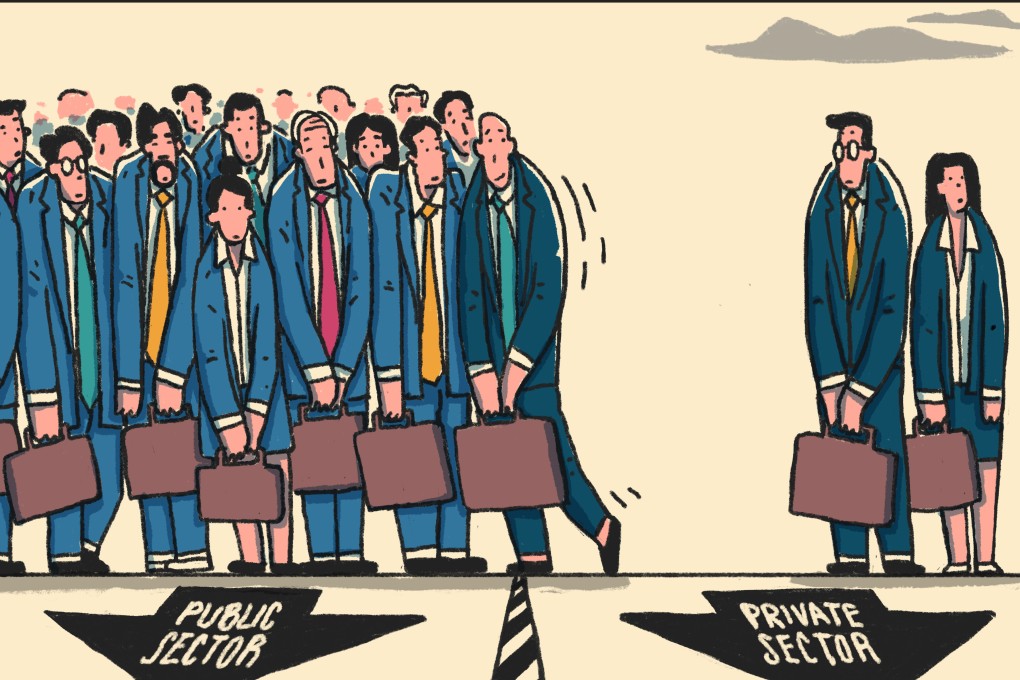China’s jobseekers search for ‘stability’ as coronavirus and regulatory crackdowns take toll
- More Chinese are abandoning their search for once-coveted private sector jobs and pursuing a stable career in the public sector
- The job market has undergone big changes in the past two years amid a virus-induced economic slump and regulatory tightening

Zhang Qijing left China for the United Kingdom in October last year to pursue a master’s degree she hoped would help her change her career path. Business at the inbound travel agency she worked for was decimated by coronavirus pandemic travel restrictions and she wanted a fresh start.
A higher degree would give her an edge in the labour market and help secure a more stable job as a public school teacher, she said. Pursuing further education seemed like an efficient way to wait out the pandemic too.
“The competition wasn’t nearly as intense before the pandemic, especially because people previously working for tutoring organisations now want to work in the public school system too,” said Zhang, who to boost her job prospects has taken dozens of tests for public sector jobs, as well as exams for a teacher’s qualification certificate.
“Now everyone wants to play it safe. The growing number of outstanding candidates keeps raising the bar, and the interviewees for public schools all have master’s or doctoral degrees from [top universities such as] Tsinghua or Peking.”